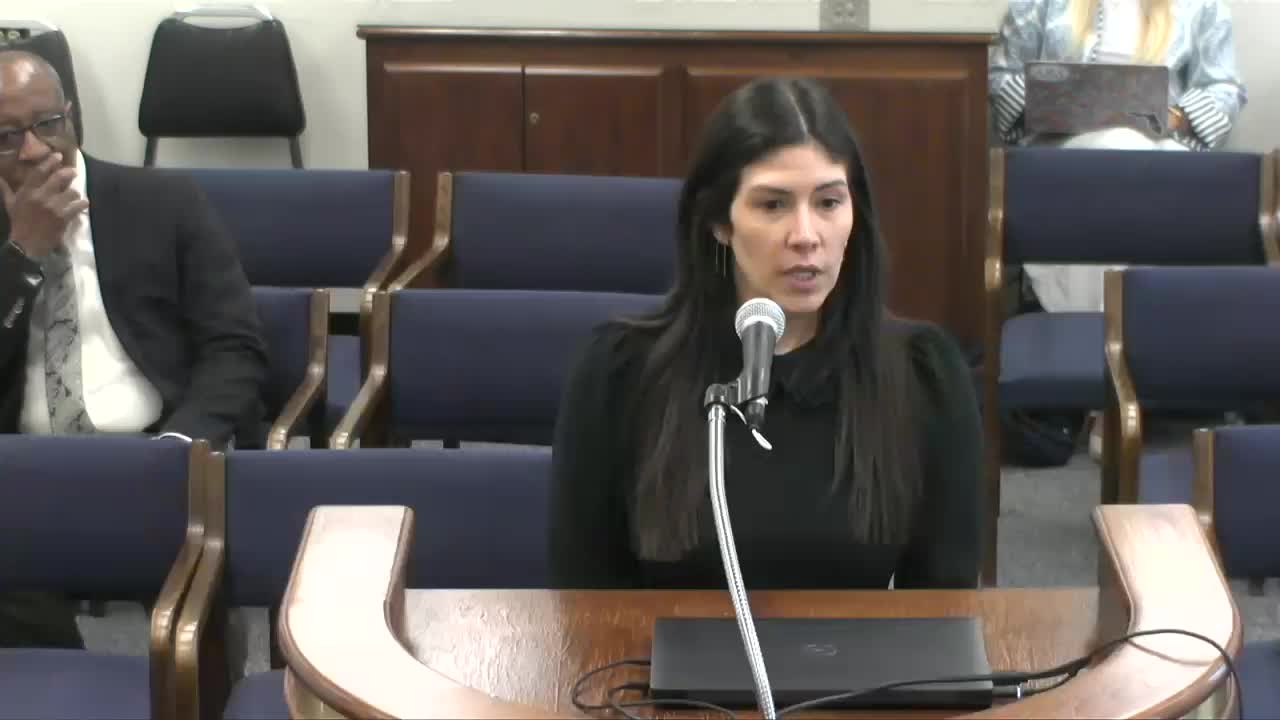Subcommittee hears bill to require reimbursement when firefighters switch departments
Get AI-powered insights, summaries, and transcripts
Subscribe
Summary
At a meeting of the Lisonbee Fees and Other Taxes Subcommittee, Representative Long introduced a bill that would require the department that hires and trains a firefighter to be reimbursed by any department that subsequently hires that firefighter.
At a meeting of the Lisonbee Fees and Other Taxes Subcommittee, Representative Long introduced a bill that would require the department that hires a firefighter to be reimbursed by any department that subsequently hires that firefighter after the original department paid for training and salary.
The measure, Representative Long said, "mirrors what's already in law for police officers. It relates to the reimbursement for training when a firefighter moves departments." The bill, Long noted, "did pass the house a couple years ago, pretty much unanimously."
Dana Phillips, a representative of the Municipal Association of South Carolina, told the subcommittee the association supports the intent but that its members have not reached a consensus on the bill's current language. "We absolutely, understand the intent and the need for something like this, and we do think that the intent is a great great intent with this bill," Phillips said, but added municipalities raised concerns about enforcement, emergency moves and widely varying local costs.
Phillips told members that survey responses from city fire departments showed large differences in training and related costs, citing examples ranging from about $2,000 at some departments to "$300,000 to $400,000" at larger departments such as Mount Pleasant and Columbia. She said those disparities make it difficult for municipalities to agree on how to calculate and enforce reimbursement and what exemptions should apply for emergency transfers.
Representative Yao questioned the discrepancy in reported costs, asking whether state training standards explain the difference. "Why is there such a cost difference? Because it's the exact same training to get certified for a firefighter in rural Chesterfield County as it is for a firefighter in urban Greenville. So I don't understand ... why is there such a difference," Yao said. Phillips responded that some standards may be minimums and that salary language in the bill could produce differing cost figures depending on local pay scales.
Chairman Rutherford urged municipal stakeholders and bill sponsors to work quickly to identify a possible statewide minimum reimbursement amount and to try to resolve language issues before the measure moves to full committee. Rutherford said, "what I would ask you all to do with with all due haste is to figure out what the minimum reimbursement could be and try and move from there." The subcommittee did not take a formal vote on the bill during the session.
A motion to adjourn debate was made and the committee proceeded to adjourn; no further action on the bill occurred during the meeting.
